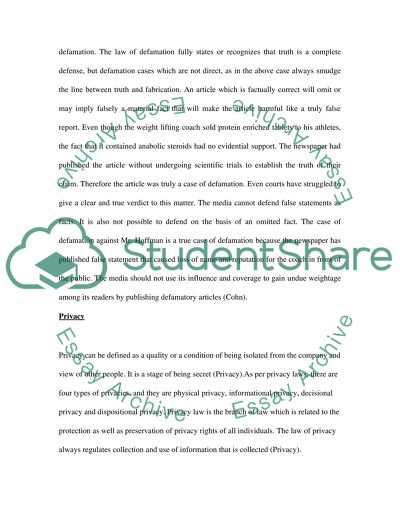Cite this document
(Defamation, Privacy in Media and Freedom of Expression Coursework, n.d.)
Defamation, Privacy in Media and Freedom of Expression Coursework. Retrieved from https://studentshare.org/media/1561163-the-law-and-the-media
Defamation, Privacy in Media and Freedom of Expression Coursework. Retrieved from https://studentshare.org/media/1561163-the-law-and-the-media
(Defamation, Privacy in Media and Freedom of Expression Coursework)
Defamation, Privacy in Media and Freedom of Expression Coursework. https://studentshare.org/media/1561163-the-law-and-the-media.
Defamation, Privacy in Media and Freedom of Expression Coursework. https://studentshare.org/media/1561163-the-law-and-the-media.
“Defamation, Privacy in Media and Freedom of Expression Coursework”. https://studentshare.org/media/1561163-the-law-and-the-media.


